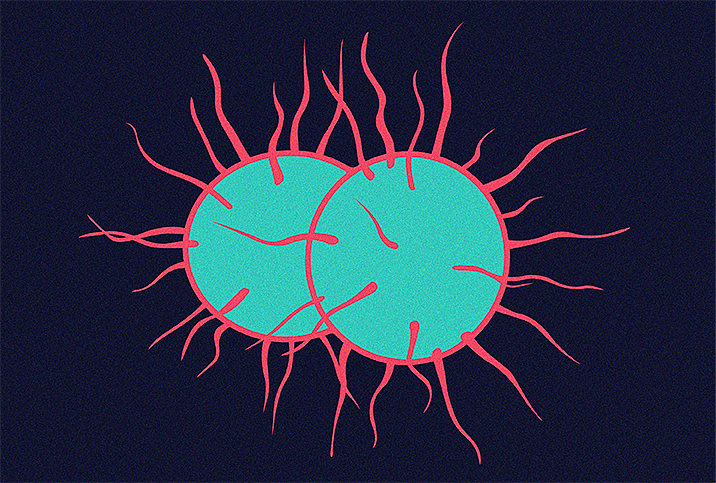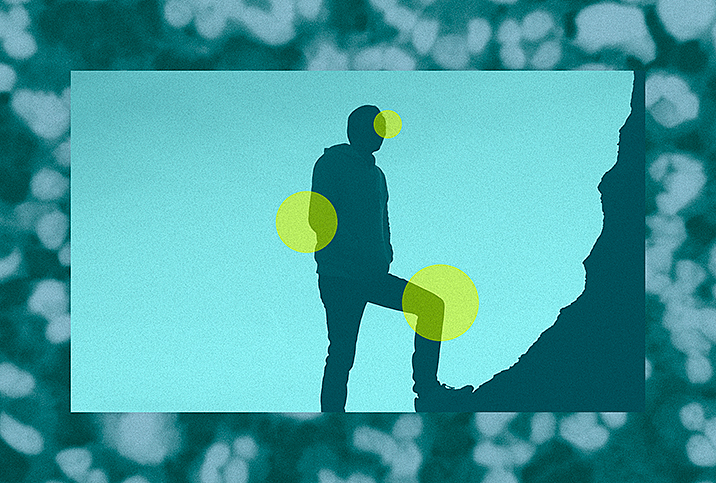Should I Be Scared of Super Gonorrhea?

In recent years, plenty of articles have been written about the dangers of antibiotic-resistant "superbugs," disease-causing bacteria, viruses, fungi and parasites too evolved for standard courses of treatment. One making headlines is the so-called super gonorrhea, a variation that has developed a resistance to the most widely used medications formerly used to treat the infection.
Many of these stories make a mass wave of untreatable gonorrhea seem just around the corner, waiting to wreak havoc on the sexually active. In a media landscape where fear-mongering headlines get clicks, we're constantly inundated with stories speculating what the next big crisis will be. Some of these do have merit—journalists writing about the grave potential threat of COVID-19 in the early days of the pandemic have since been vindicated by history—but others die in obscurity (remember the 2012 Mayan calendar panic?).
So what's the deal with super gonorrhea? Is it an inevitable plague or just hot air?
An ever-adapting infection
Ned Hook, M.D., an infectious disease expert and professor of medicine and epidemiology at the University of Alabama at Birmingham who has advised the CDC and WHO, confirmed that antibiotic-resistant gonorrhea is a real thing, rather than an urban legend designed to scare the masses into celibacy.
"We know for a fact gonorrhea has become resistant to every antibiotic once recommended for treatment, which demonstrates the ability of this organism to become resistant to antibiotics," Hook said.
Gonorrhea has a storied history of outpacing medications intended to halt it. Drugs like sulfonamides, penicillin, fluoroquinolones and others were all once used as treatment, but became obsolete over time. CDC guidelines for the treatment changed as recently as December 2020, when increased antibiotic resistance led the organization to alter the recommended course of treatment from a combination of ceftriaxone and azithromycin to ceftriaxone alone.
In some very rare cases, however, individuals will show resistance to these medications as well: You may recall the highly publicized case of a man from the U.K. whose gonorrhea failed to respond to first-line treatment in 2018.
A crisis on the horizon?
Super gonorrhea has yet to hit critical mass. In fact, "you can count the number of proven cases on your fingers and toes," Hook said. He largely credited this to the low case rate (so far, at least) and ensuing control efforts, like contact tracing and successful treatment with medications like ertapenem.
However, this doesn't mean the current situation will remain the same. As we all saw with COVID-19, a few initial cases can rapidly spiral out of control. And even an increase in gonorrhea that hasn't yet developed resistance to the current drugs can lead to an increase in super gonorrhea. The more cases of "regular" gonorrhea there are, the more chances it has to mutate, so limiting the spread of overall infections is key to success.
"If you can get rates low enough, the likelihood that naturally occurring mutations causing major problems becomes quite small," Hook said.
Unfortunately, cases of gonorrhea have been on the rise for several years now. The CDC recorded 616,392 cases of gonorrhea in 2019, a 92 percent increase from 2009. According to Hook, "That number probably reflects less than half the number of cases that actually occurred."
The current recommended medication for gonorrhea falls far short of the rapid, accessible treatment needed to slow the rate of transmission due to the fact it's administered as an injection rather than a pill.
"It creates logistical problems for clinical settings and offices," Hook explained. "Many doctors and pharmacies don't stock those drugs on their shelves."
Given all of these factors, experts fear antibiotic-resistant gonorrhea en masse isn't far off.
"The spread of super gonorrhea will occur. The question is how much and how soon," Hook said.
Innovation underway
The scientific community isn't taking superbugs such as antibiotic-resistant gonorrhea lightly. Researchers are working diligently to come up with solutions, and there are already a couple of approaches showing serious promise.
"The National Institutes of Health and several other large health organizations have begun looking at gonorrhea vaccines," Hook said. "Those vaccines are in clinical trials, and there's great hope that they could prevent gonorrhea."
There are also two new drugs—zoliflodacin and gepotidacin—both pills, being developed to treat gonorrhea. Hook said there would likely be data available on the efficacy of these drugs in the next three to four years, while results on a gonorrhea vaccine may take longer.
"Having these new pills will be a great step forward," Hook said.
Caring for your health
For now, the best way to protect yourself against antibiotic-resistant gonorrhea is to follow standard safe-sex practices, including "routine testing, having good conversations with your partner, and using appropriate prevention, such as condoms," Hook said.
Hook also believes we need to change the public discourse about gonorrhea and other STDs. He pointed to a report released last March by the National Academies of Sciences, Engineering, and Medicine, which called for a focus on promoting sexual health rather than sowing fear of diseases.
"We are all sexual beings, and the right thing to do is invest in our sexual needs," Hook said. "Get regular testing and checkups, and have conversations about past histories and past partners with new partners. We should try to have respect for one another as we explore our sexuality."


















